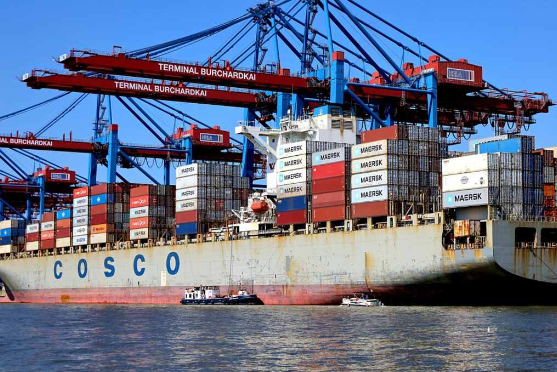International trade is a vital component of the global economy, with goods being transported across borders every day. In this interconnected world, freight forwarders play a crucial role in facilitating the movement of goods between countries.
Dubai, a major hub for trade and logistics, has seen significant growth in its freight forwarding industry over the years. Let’s explore how freight forwarders in Dubai are shaping international trade.
The Rise of Dubai as a Global Trade Hub
Dubai’s strategic location between East and West has positioned it as a central hub for trade and commerce. The Emirate’s world-class infrastructure, including state-of-the-art ports, airports, and free zones, has attracted businesses from around the globe. As a result, Dubai has become a key player in international trade, with a thriving logistics sector that continues to expand rapidly.
Dubai’s strategic location along major trade routes has made it an ideal connection point for businesses looking to reach markets in both the East and West. The Emirate’s advanced infrastructure, such as Jebel Ali Port – one of the busiest ports in the world, Dubai International Airport – one of the busiest airports globally, and numerous free zones offering tax incentives and simplified customs procedures, have all contributed to its success as a trading hub.
With a strong focus on innovation and technology, Dubai has developed a thriving logistics sector that leverages cutting-edge solutions to enhance efficiency and streamline operations. This has further cemented Dubai’s position as a global leader in trade and commerce, attracting multinational corporations and fostering economic growth.
Dubai’s strategic location, outstanding infrastructure, and business-friendly environment have combined to make it a central hub for international trade, driving its economy and solidifying its reputation as a key player in the global marketplace.
The Role of Freight Forwarders in International Trade
Freight forwarders act as intermediaries between exporters and importers, managing the transportation and logistics of goods from the point of origin to the final destination. They handle various tasks such as customs clearance, documentation, warehousing, and shipping arrangements. In the context of international trade, freight forwarders play a critical role in ensuring smooth and efficient movement of goods across borders.
Freight forwarders are crucial in navigating the complexities of global supply chains, optimizing routes, and selecting the most cost-effective modes of transportation. They also assist in managing risk factors such as regulatory compliance, insurance, and potential delays.
Their expertise in coordinating multiple parties involved in the shipping process makes them valuable partners for businesses looking to expand their reach in the international market. Ultimately, freight forwarders help streamline the entire shipping process, saving time and resources for both exporters and importers.
Advantages of Using Freight Forwarders
There are several advantages to using freight forwarders in international trade. Firstly, freight forwarders have extensive knowledge of customs regulations and trade procedures in different countries, helping businesses navigate complex international trade requirements.
They also have established relationships with shipping lines, airlines, and other logistics providers, allowing them to negotiate competitive rates and secure efficient transportation options for their clients.
Integration of Technology in Freight Forwarding
With the advancement of technology, the freight forwarding industry has undergone significant transformation. Many freight forwarders in Dubai are leveraging digital platforms and software solutions to streamline their operations and enhance customer experiences.
From track-and-trace capabilities to automated documentation processes, technology has enabled freight forwarders to offer more efficient and transparent services to their clients.
Sustainability Initiatives in the Freight Forwarding Industry
As the world focuses on sustainability and environmental conservation, the freight forwarding industry is also taking steps to reduce its carbon footprint. Many freight forwarders in Dubai are investing in eco-friendly practices such as using alternative fuels, optimizing shipping routes to minimize emissions, and implementing green supply chain solutions.
By adopting sustainable initiatives, freight forwarders are not only contributing to environmental preservation but also meeting the evolving demands of environmentally conscious consumers.
Challenges and Opportunities for Freight Forwarders in Dubai
Despite the growth and advancements in the freight forwarding industry, there are challenges that freight forwarders in Dubai face. These include geopolitical uncertainties, fluctuating fuel prices, regulatory changes, and technological disruptions. However, with challenges come opportunities for innovation and growth.
Freight forwarders can capitalize on emerging technologies, expand their service offerings, and enhance their global network to stay competitive in the dynamic landscape of international trade.
The Future of Freight Forwarding in Dubai
Looking ahead, the future of freight forwarding in Dubai looks promising. With the Emirate’s commitment to infrastructure development, innovation, and sustainability, Dubai is well-positioned to continue shaping international trade dynamics.
As global trade patterns evolve and supply chains become more complex, the role of freight forwarders in facilitating seamless logistics solutions will only grow in importance. By staying adaptable, embracing technology, and prioritizing sustainability, freight forwarders in Dubai are set to play a pivotal role in driving the future of international trade.




